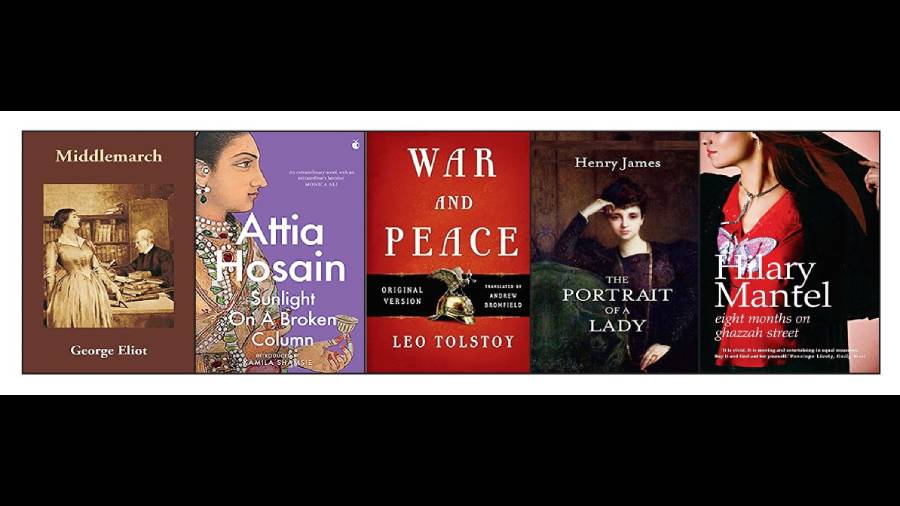Many readers I know feel that the pandemic has dulled their ability to read and, in particular, finish books. While the anxiety and uncertainty during this time may indeed be responsible for such a lull for some people, most readers would likely have experienced a change in reading habits at other points too.
I have been a reader since I can remember. In 2014, when I was first thinking about writing my novel, I had been experiencing a slump in my reading: I could not seem to read beyond a few pages of any book without getting distracted. One winter morning that year, I was at the Daryaganj book market in Delhi when I saw a copy of George Elliot’s Middlemarch, and decided to give it a go. I didn’t think I would get far — the number of pages were comparable to my favorite book, A Suitable Boy, but I didn’t have as much faith in my reading stamina as I did when I was 15 when I had read Vikram Seth’s novel.
In any event, I started to read Middlemarch, and that kickstarted the best year of reading I had had since school. I devoured so many books that year, and that helped me to prepare myself for my writing journey (I never read fiction once I started writing). Here are some of the books I read in that year of reading:
Middlemarch: What I loved most about Middlemarch was the heroine, Dorothea. Intelligent, and more financially independent than my favourite Austen heroines, she kept me guessing on what she would do or think next. She was sensible, but not so sensible so as to be immune to love. Dr Lydgate and his story is fascinating, interwoven as it is with the practice of medicine in Elliot’s times. The book is engrossing, and pulls you into the world of the town and its characters but, more importantly, the writer’s wisdom often compels one to pause, look away from the pages, and think for a minute or two before returning to the book.
War and Peace: After Middlemarch, I was confident and picked up the one book I had always wanted to begin but was afraid of abandoning and then never going back. War and Peace has been translated by many, and I would recommend readers to read samples from different translators before choosing the version they like. I was seduced by an old, hardbound, slippery-paged copy of War and Peace translated by Louise and Alymer Maude. It opened up a new world to me: that of Russia, cold and snowbound in winter, fresh and sunny in the summer. The romance, the war, the history in the book, make for such an enjoyable and challenging read. I followed this up with Anna Karenina, and also a trip to Russia.
Eight Months on Ghazzah Street: This is one Hilary Mantel book that I loved that does not find frequent mention: a story of Frances Shore, a cartographer who accompanies her architect husband to stay in Saudi Arabia for a period of time. It is a western view of this world with its alien customs and different rules, but empathetic and horrifying at the same time, and so fascinating. I balanced this read with the very light Girls of Riyadh, which is a very different take on life in Saudi Arabia through four upper-class Saudi women’s lives.
Sunlight on a Broken Column: I enjoyed Attia Hossain’s story of Laila: her initial life in strict purdah, and then a freer existence in college engaging with the freedom movement and politics of the time. It is not a long read, and reminded me of the work of Sunil Gangopadhayay, whom I had read in my earlier years.
Portrait of a Lady: I had read of Henry James’s dismissive remarks on Jane Austen, and had taken personal offence so as to pass on his books whenever I came across them. Towards the middle of 2015, I picked up Portrait of a Lady and was utterly charmed by its world: its characters and particularly Ms Archer and her life in England and Italy. It is a book to be read slowly, savoured and imagined in detail.
I read many more books in my year of reading, it made for one of the happiest and most fulfilling years I have had. I started to write after that and felt that the writing came naturally, easily, as if I now understood what made a story turn into a book.
The author is a lawyer turned novelist. Her first book Best Intentions was published by HarperCollins India this year











